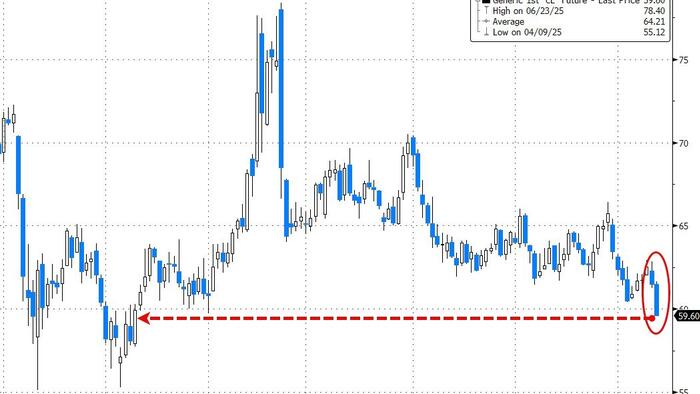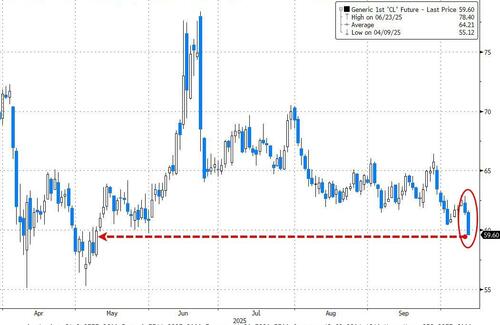


WTI is trading back below $60 for the first time since early May on cautious optimism about easing tensions in the Middle East and the outlook for a global supply surplus.
Source: Bloomberg
The drop comes as Middle East tensions calm with Israel and the Hamas militant group agreeing to a ceasefire in their two-year war in Gaza, easing concerns over a widening conflict in the region that could cut into oil supplies from the Persian Gulf.
"Oil steadied near recent lows, holding the week's sharpest drop amid cautious optimism over easing Middle East tensions and improved supply prospects ... Israel's approval of a peace framework, including hostage and prisoner exchanges, supported sentiment," Saxo Bank noted.
Meanwhile, oil markets are heading for a significant surplus fueled by rising output from both outside and within the OPEC+ alliance, which agreed to raise production quotas to reclaim market share over the weekend.
The broad mood remains bearish, though there are discrepancies about how gloomy crude’s prospects are, according to Citigroup Inc., which summarized views from clients.
“We are heading for a challenging weekly close below $65 which is likely to attract some attention from short sellers,” said Ole Hansen, head of commodities strategy at Saxo Bank, adding that the losses are driven by the peace agreement between Israel and Hamas.
Bloomberg also reports that traders were also on alert after the US sanctioned a key crude-import terminal and a privately-owned Chinese refinery for involvement in the trade of Iranian oil. It’s the latest in a series of penalties this year that have targeted companies in the Asian nation.

